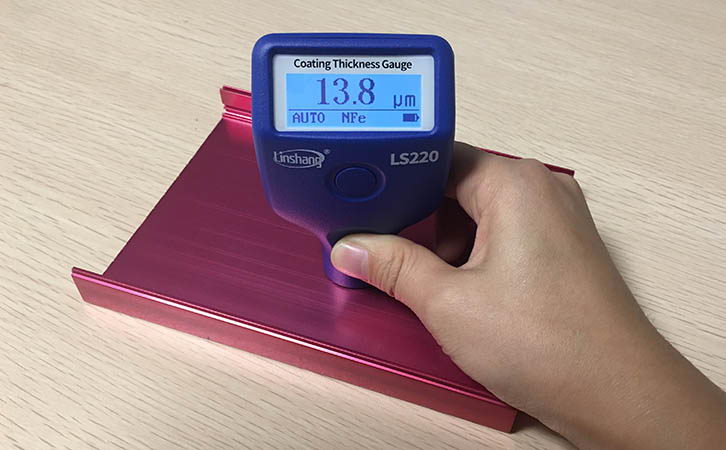How to Choose Coating Thickness Gauge?
Customers often ask "How do I choose a coating thickness gage?" Before describing a few tips on buying coating thickness gage, let’s first understand what a coating thickness gage is. What is its role.
1. What is a coating thickness gauge?
The coating thickness gauge, as the name suggests, is an instrument used to measure the thickness of the coating on the surface of an object, and the coating thickness gauge we are talking about refers to an instrument for testing the thickness of a coating on a metal substrate. Such as the thickness of steel, paint, powder and other spraying materials.
The coating thickness gauge has the characteristics of small measurement error, high reliability, good stability and easy operation. It is an indispensable testing instrument for controlling and ensuring product quality. It is widely used in manufacturing, metal processing, chemical industry, Inspection and other inspection fields.
Coating thickness gauges include magnetic thickness measurement and eddy current thickness measurement. Magnetic thickness measurement is used to measure non-magnetic coatings on magnetic metal substrates, like paint on steel. Steel is magnetic, and paint is non-magnetic. Eddy current measurement The thick method is used to measure non-conductive insulating coatings on non-magnetic metal substrates. Like paint on aluminum, aluminum is a non-magnetic metal and paint is a non-conductive coating.
2. How to choose a coating thickness gauge?
When choosing coating thickness gauge, many customers do not know which thickness gauge they need to test their products. There are too many products on the market and it is easy to be confused. Generally, you can learn how to choose the right one from the following aspects:
Step 1: What to test?
Is the thickness of the product? Or the coating thickness on the product surface? (Be sure to figure out whether you need to test- the coating thickness or the overall thickness)
Step 2: The test substrate
Is it a magnetic substrate (such as steel, iron, alloy, hard magnetic steel, etc.) or a non-magnetic substrate (such as copper, aluminum, zinc, tin, etc.) or a plastic substrate. Distinguish what the substrate is and whether the instrument can measure it. Like the coating on the plastic substrate surface, conventional coating thickness gauges cannot be used. In addition, the coating thickness gauge itself is divided into iron-based thickness gauge, aluminum-based thickness gauge and iron-aluminum dual-purpose coating thickness gauge.
Step 3: What material is on the substrate surface?
Learn what the coating material is, whether it is magnetic or non-magnetic, or whether it is conductive. This is very important. If the coating is a non-conductive material, it can be measured regardless of whether the substrate is magnetic or non-magnetic. But if the coating is a non-magnetic conductive metal, it can only be measured by coating on a magnetic metal substrate. If the coating is also a magnetically conductive metal, it cannot be measured no matter what type of metal substrate it is applied to.
Step 4: Understand the parameters of the instrument
After understanding the relevant issues of the measured material, it is necessary to understand whether the performance of the coating thickness gauge meets its own requirements. For example, whether the test range of the instrument is sufficient and whether the measurement accuracy meets the standards.
Basically from the above four steps you can know how to choose a coating thickness gauge. In the end, users may still be more concerned about the coating thickness gauge price, so you have to choose a few more brands to compare the performance and parameters to choose a more cost-effective instrument. It is hoped that the above content can really help users to choose a cost-effective coating thickness gauge.
- High precision coating thickness gauge for used car
- Automotive paint protection films coating thickness gauge
- Plating Thickness Measuring Instrument for Detecting Anti-corrosion Coating
- Linshang LS220, LS191, LS160A– Necessary for Car Cover Inspection
- Coating Thickness Gauge for Second Hand Vehicle
- Zero Adjustment Step of Coating Thickness Gauge
